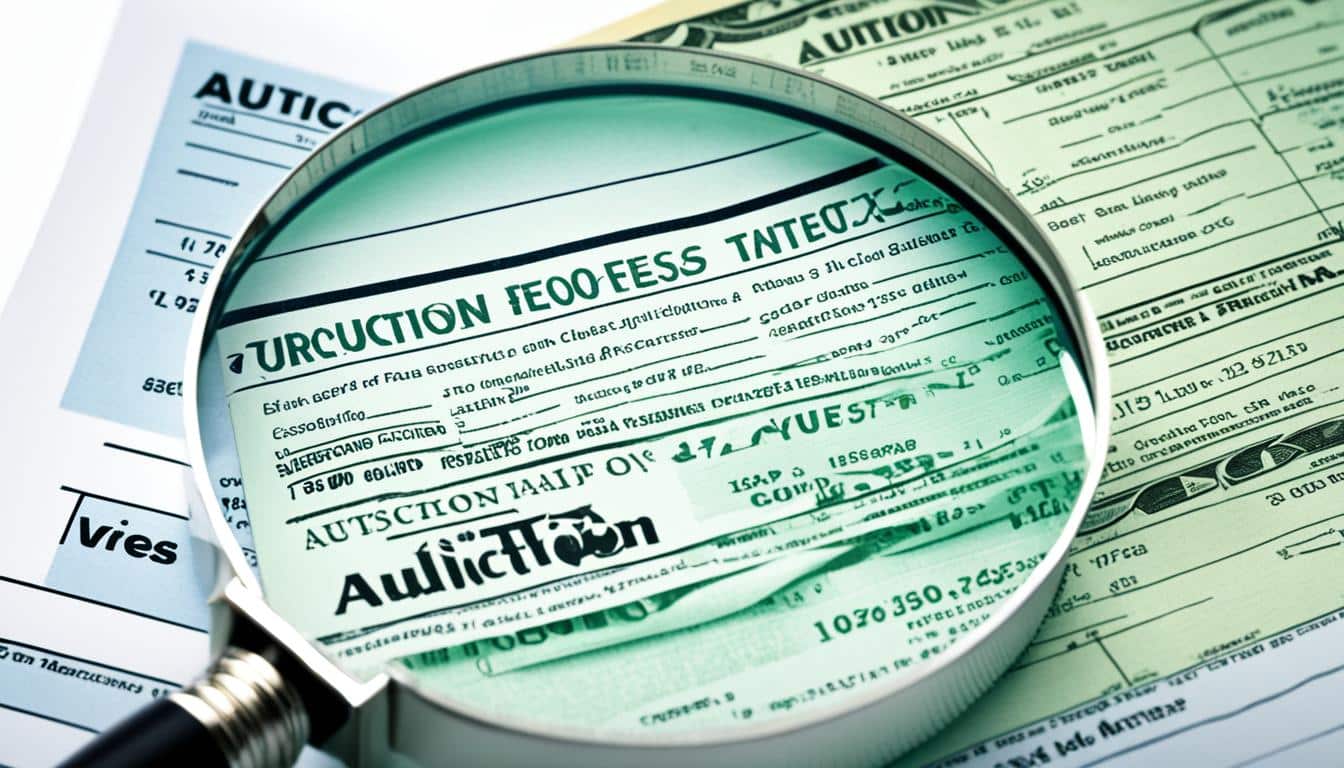Getting into auctions is exciting, but tax time can raise questions. You might think about the tax perks of paying auction fees. If you get a great item at a charity auction for more than its real value, good for you! The extra you paid could count as a donation. But, if you donate items, tax deductions could be tricky. If a charity uses your donation in a way you didn’t plan for, your deduction is limited. It helps to know the IRS rules to avoid surprises.
Key Takeaways
- If you buy an item at a charity auction above its fair market value, the excess can be claimed as a charitable donation deduction.
- Items donated for charity auctions can’t be deducted at fair market value if the charity uses them for unrelated purposes.
- The deduction for items donated is limited to the donor’s tax basis in the contributed property.
- Understanding tax benefits of auction fees is crucial for accurate deductions.
- Make sure to familiarize yourself with the IRS rules on auction fees to ensure compliance.
Understanding Auction Fees and Deductible Expenses
When you wonder, “Are auction fees tax deductible?” knowing what those fees cover helps. These costs can include commissions, listing fees, and other charges. It’s key to understand these components and the rules they fall under.

What Are Auction Fees?
If you join an auction, you’ll pay certain fees. This might be for things like:
- Commissions
- Listing fees
- Other related expenses
These costs can mount up fast. Hence, figuring out which you can deduct is important to save on taxes.
The Difference Between Hobby and Business Auctions
How you engage in auctions affects fee deductibility. For hobbyists, the question is, “Can I deduct auction fees?” Yes, but there are limits:
- Hobbyists can deduct fees as miscellaneous itemized deductions.
- Yet, these deductions can’t be higher than what you make from the hobby.
For sellers in business, the scenario varies. Fees are considered ordinary and necessary business costs, so they are fully deductible. This distinction is crucial for accurate expense classification.
Personal vs. Investment Property
The type of property you sell at auction also matters. It falls into two categories:
- Personal Property: You usually don’t report the sale unless it’s profitable.
- Investment Property: These sales are reportable and may involve capital gains or losses.
Fees from selling investment property are deemed investment expenses. They get listed on Schedule A, with some deductibility limitations. Remembering this helps you know which auction expenses are deductible.
Reporting Auction Fees to the IRS: Best Practices
Auction fees can seem overwhelming, but getting organized helps a lot. By following IRS rules, you can even get tax breaks. Here are some key tips for handling auction fees well.
Keeping Accurate Records
Claiming a deduction for auction costs starts with good records. No matter if you buy or sell, keep track of everything:
- Receipts from auction houses
- Invoices for items you buy
- Descriptions of things you sell or buy
These records are key when you tell the IRS about your fees. Good records make filing taxes easier and more accurate. They help make sure you don’t miss any deductions.
Which Tax Forms to Use
Choosing the right form for your auction spending depends on your role:
- Hobbyists: List your fees on Schedule A as a deduction.
- Business people: Use Schedule C for auction where you earn money; count the fees as business costs.
- Investment property owners: Show what you made or lost on Schedule D. Include auction costs with your investments.
With the right forms, you can make tax time simpler. And, you might be able to deduct more of your auction expenses without trouble.
Let’s compare these methods quickly:
| Type of Involvement | Tax Form | Described As |
|---|---|---|
| Hobbyist | Schedule A | Miscellaneous deductions |
| Business | Schedule C | Business expenses |
| Investment Property | Schedule D | Capital gains and losses |
Are Auction Fees Tax Deductible?
It’s possible to deduct auction fees, but it varies. The rules depend on your auction activities and specific tax laws. We’ll look at when auction cost tax deductions and the tax implications of auction fees apply.
Ordinary and Necessary Business Expenses
If your business includes auctions, the fees might count as necessary and ordinary expenses. This means you can lower your taxable income by deducting these fees. It’s great for your business’s finances. Just be sure to keep clear records of your auction costs.
Miscellaneous Itemized Deductions
For auctions linked to hobbies, the tax treatment is different. Here, auction cost tax deductions are only possible if your hobby income is more than 2% of your adjusted gross income. You must track both your hobby’s income and its related expenses closely.
Capital Gains and Losses
Auction fees impact capital gains and losses, especially with investment properties. These fees are added to the property’s cost basis. This can reduce the capital gains tax for high-value properties. It also applies to personal property sales. So, good record-keeping is key.
Conclusion
Our discussion on *auction fees tax write off* and *claiming auction fees on taxes* ends here, highlighting the complex but manageable tax scene tied to auction fees. It’s critical to know if your auctions are for fun or a business. This decides if you can get tax cuts. Also, the kind of stuff you sell matters a lot.
To make sure you get credited for your auction fees, keep good records. Save all your receipts and have clear info on what you sold. This will help you save more on taxes. It’s also key to fill out the right tax forms correctly. Following the IRS guidelines is crucial for an easy tax season. Putting in the work to grasp these parts can lead to big savings later.
Tackling tax laws alone can be overwhelming. Getting advice from a tax expert can be a game-changer. They can help with tricky areas like *auction fees tax write off* and *claiming auction fees on taxes*. Staying in line with the law and using all the deductions you can are vital. So, keep your paperwork tidy, stay on top of news, and ask for help when you’re stuck.








